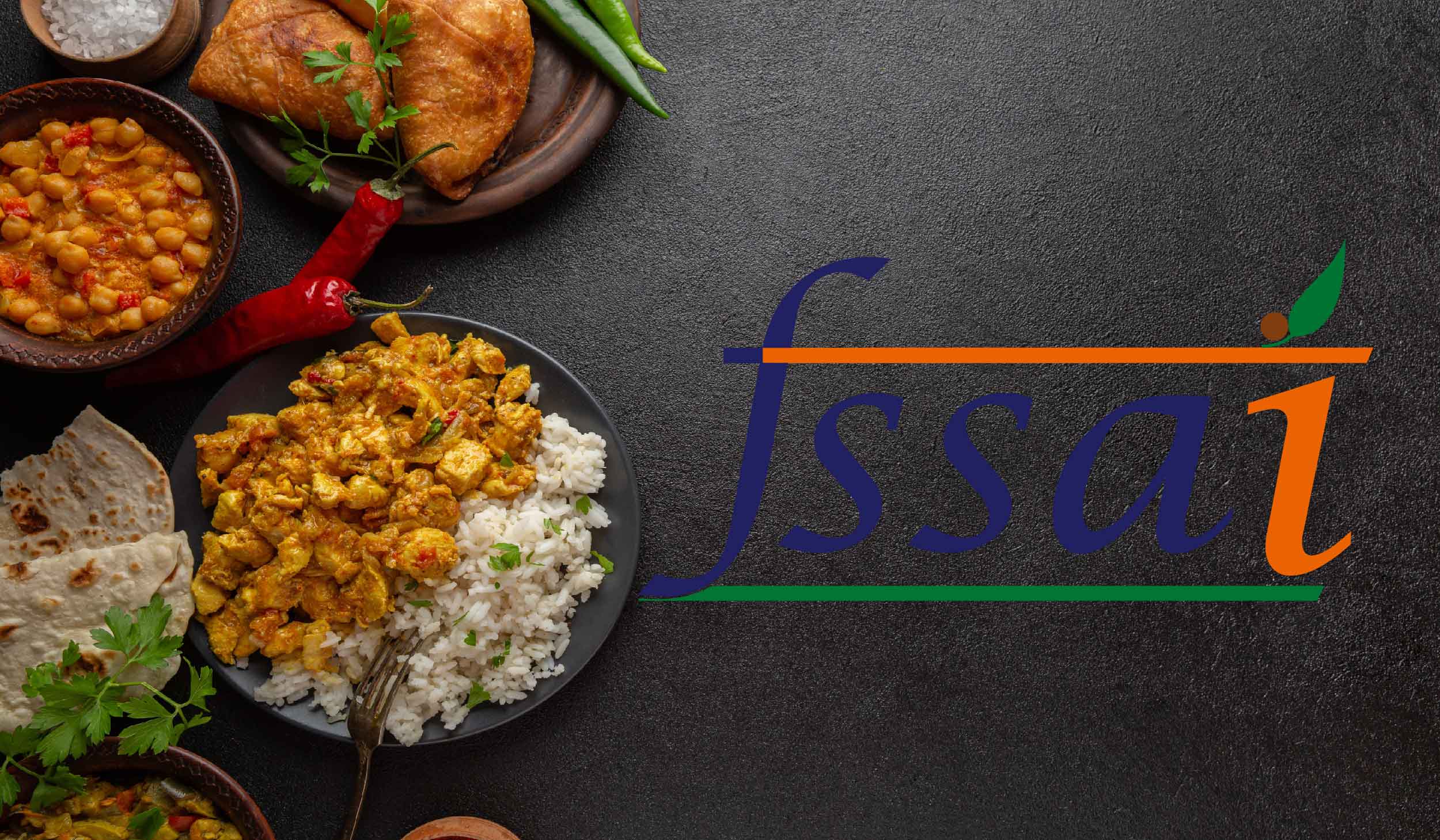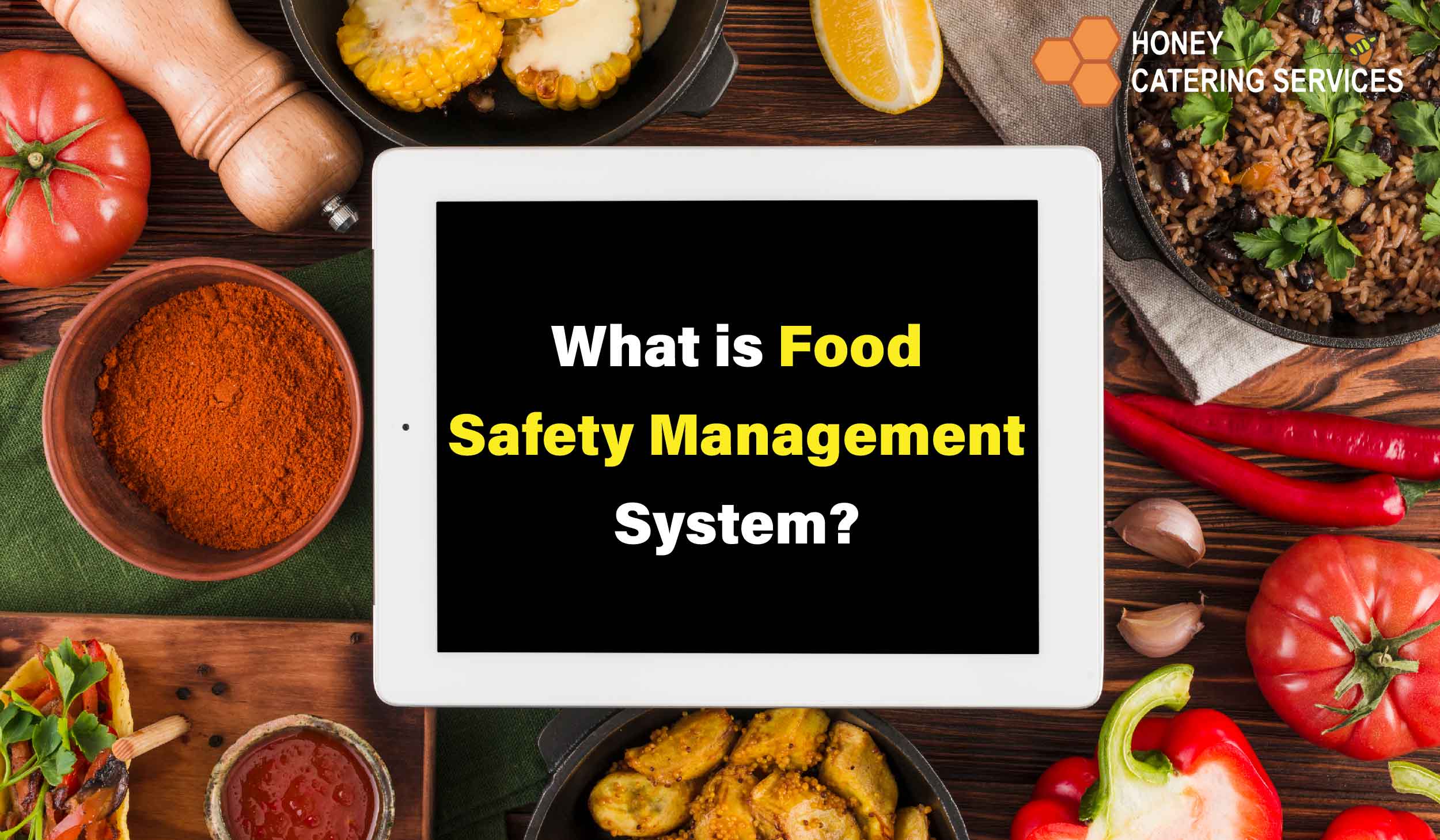The Importance of Food Safety Standards Act 2006
Food safety is a critical aspect of public health, encompassing the practices and measures necessary to ensure that food is safe for consumption and free from contaminants that could harm consumers. With the growing complexity of global food supply chains and increasing consumer awareness, maintaining high food safety standards has become more crucial than ever.
In India, the Food Safety and Standards Authority of India (FSSAI) plays a pivotal role in this domain. Established under the Ministry of Health & Family Welfare, FSSAI is the statutory body responsible for regulating and overseeing food safety standards across the country. Its mission is to protect public health by ensuring that the food consumed is safe, hygienic, and of the highest quality.
Key Functions of FSSAI:
Regulation and Supervision:
- Regulation: FSSAI sets and enforces food safety standards for a wide range of food products. This includes defining permissible limits for contaminants, food additives, and nutritional values. Regulations also cover hygiene and safety practices in food handling and processing.
- Supervision: The authority monitors the implementation of food safety laws and standards across the food supply chain, from production to consumption. It ensures that food businesses comply with established regulations to maintain public health.
Licensing and Registration:
Licensing: FSSAI issues licenses to food businesses of various scales, including large manufacturers, processors, and importers. This ensures that these entities adhere to safety and quality norms. There are thorough examinations and audits as an element of the licensing procedure.
Registration: Small food businesses, such as local eateries and small-scale producers, are required to register with FSSAI. While they do not need a full license, they must still comply with the basic safety and quality standards set by FSSAI.
Standards and Guidelines:
- Standards: FSSAI establishes standards for various food products, including limits for pesticides, contaminants, and food additives. These standards help in maintaining the safety and quality of food consumed by the public.
- Guidelines: The authority provides comprehensive guidelines on food labeling, packaging, and storage. These guidelines ensure that food products are correctly labeled with nutritional information, ingredients, and expiry dates, which helps consumers make informed choices.
Education and Awareness:
- Training: FSSAI conducts training programs for food businesses and professionals to improve their understanding of food safety practices. These programs cover topics such as hygiene, handling procedures, and regulatory compliance.
- Awareness Campaigns: The authority runs public awareness campaigns to educate consumers about safe food practices, the importance of food labeling, and how to avoid foodborne illnesses.
Food Testing and Certification:
- Testing: FSSAI oversees a network of food testing laboratories that conduct tests on food products to ensure they meet safety and quality standards. These tests help in identifying contaminants and ensuring compliance with regulations.
- Certification: The authority provides certifications for various food safety practices and systems, such as Hazard Analysis and Critical Control Points (HACCP). Certifications help businesses demonstrate their commitment to food safety and quality.
Complaint Handling and Enforcement
Complaints: FSSAI has established a robust system to handle consumer complaints related to food safety. This system is designed to address various issues, including:
- Adulteration: Complaints about the deliberate addition of harmful or unauthorized substances to food products. FSSAI investigates these claims to ensure that food products meet safety standards and are free from harmful adulterants.
- Mislabeling: Complaints concerning inaccurate or misleading information on food labels. This includes issues such as incorrect nutritional information, misleading ingredient lists, or false claims about the food’s origin or benefits.
- Unsafe Practices: Complaints about unsafe food handling practices, such as improper storage, contamination, or unhygienic preparation methods. FSSAI takes these complaints seriously to ensure that food businesses adhere to safe practices and protect consumer health.
FSSAI’s complaint handling system includes mechanisms for consumers to report issues via online platforms, helplines, and physical submissions. The authority investigates these complaints thoroughly, taking appropriate action to resolve issues and ensure compliance with food safety standards.
Enforcement: To uphold food safety laws and regulations, FSSAI employs a comprehensive enforcement strategy that includes:
- Inspections: Regular inspections of food establishments, including manufacturers, processors, and retail outlets, to assess compliance with food safety standards. These inspections help identify potential violations and ensure that food businesses adhere to safety practices.
- Penalties: Imposing fines and other penalties on food businesses that fail to comply with FSSAI regulations. Penalties serve as a deterrent and encourage businesses to maintain high standards of food safety.
- Corrective Actions: Requiring businesses to take corrective measures to address identified violations. This may include improving hygiene practices, updating labels, or modifying production processes to ensure compliance with food safety standards.
- Suspension and Revocation of Licenses: In cases of severe or repeated non-compliance, FSSAI has the authority to suspend or revoke the licenses of food businesses. This action is taken to protect public health and prevent the distribution of unsafe food products.
- Legal Actions: Initiating legal proceedings against businesses that persistently violate food safety laws or engage in fraudulent practices. Legal actions can result in court orders, additional fines, and other legal consequences.
Through these enforcement mechanisms, FSSAI ensures that food safety regulations are effectively implemented and that any deviations are promptly addressed, thus maintaining the integrity of the food supply and protecting consumer health.
In essence, FSSAI serves as the backbone of India’s food safety infrastructure, ensuring that all aspects of food safety are effectively managed and enforced. Its role is crucial in safeguarding public health, building consumer confidence, and regulating the food industry to uphold the highest standards of quality and safety.
Key Regulations and Standards:
Food Safety and Standards Act, 2006:
This legislation establishes the legal framework for food safety and standards in India. It provides the foundation for FSSAI’s functions and powers, setting out the regulatory structure, defining food safety standards, and outlining the authority’s responsibilities in overseeing and enforcing food safety practices across the country.
Click here to know more: https://fssai.gov.in/cms/food-safety-and-standards-act-2006.php
Food Safety and Standards (Packaging and Labeling) Regulations:
These regulations govern how food products are packaged and labeled to ensure that they offer accurate and clear information to consumers. They mandate proper labeling of ingredients, nutritional information, and expiry dates to help consumers make informed choices and ensure transparency in food products.
Click here to know more: https://www.fssai.gov.in/upload/uploadfiles/files/Packaging_Labelling_Regulations.pdf
Food Safety and the Standards (Licensing and Registration of Food Businesses) Regulations:
These regulations detail the procedures for obtaining licenses and registering food businesses. They specify the requirements for compliance, including application processes, necessary documentation, and adherence to food safety standards, ensuring that all food businesses operate within the legal framework set by FSSAI.
Click here to know more: https://www.fssai.gov.in/upload/uploadfiles/files/Licensing_Regulations.pdf
Click here to know more: https://jaivikbharat.fssai.gov.in/pdf/Compendium_Licensing_Regulations.pdf
Impact and Importance:
Consumer Protection:
FSSAI plays a crucial role in safeguarding public health by ensuring that food products are safe to consume and free from harmful substances. This helps in preventing foodborne illnesses and protecting consumers’ well-being.
Food Industry Regulation:
The authority regulates the food industry such as all kinds of food business, catering, hotels, and any private kitchen by setting standards and conducting inspections. This ensures that food businesses adhere to safety norms and maintain high-quality standards.
Public Health:
By enforcing food safety regulations and promoting best practices, FSSAI contributes to the overall improvement of public health. Its efforts help in reducing the incidence of food-related health issues and enhancing the quality of food available in the market.
Structure and Organization of FSSAI
Leadership: The Food Safety and Standards Authority of India (FSSAI) operates under a structured leadership to effectively manage and enforce food safety regulations. The leadership of FSSAI includes: Chairperson, Members, CEO, Key officials- These structured members of the organization are responsible for specific functions, such as legal affairs, scientific research, and enforcement. These officials all together work to support the CEO and ensure the smooth functioning of FSSAI’s activities.
Regional Offices: FSSAI’s structure includes regional offices that play a crucial role in implementing and enforcing food safety regulations at the state and local levels. These offices help bridge the gap between the central authority and local food businesses. Functions of the regional offices include
- Inspection and Enforcement: Regional offices conduct inspections of food establishments to ensure compliance with food safety standards. They also enforce regulations and take corrective actions when violations are found.
- Licensing and Registration: They handle the licensing and registration process for food businesses operating within their jurisdiction. This includes issuing licenses, renewing registrations, and ensuring that businesses meet the required safety standards.
- Training and Awareness: Regional offices conduct training programs and awareness campaigns for food businesses and consumers. These programs aim to improve understanding of food safety practices and compliance with regulations.
- Complaint Handling: They address consumer complaints related to food safety, investigate issues, and take necessary actions to resolve problems.
Coordination: Regional offices coordinate with the central FSSAI office to ensure uniform implementation of food safety standards across the country. They provide feedback and report on local issues, which helps in refining and updating national policies.
Initiatives and Programs by FSSAI
Eat Right India: This initiative promotes healthy eating habits and aims to ensure safe food consumption. It focuses on encouraging balanced diets, reducing excess sugar, salt, and fat intake, and fostering a culture of safe and nutritious eating across the country. Visit: https://eatrightindia.gov.in/
Food Safety Mitra: This scheme supports small and medium-sized food businesses by providing access to trained professionals who assist them in complying with food safety standards. It helps these businesses implement best practices and achieve necessary certifications. Visit: https://mitra.fssai.gov.in/mitra/loadIndexData
Clean Street Food: This program is designed to enhance the hygiene and safety of street food vendors. It includes training and certification to improve food handling practices and ensure that street food is prepared and served in a safe and clean environment. Visit: https://eatrightindia.gov.in/streetfoodhub/home
Technological Advancements
Food Safety Compliance System (FoSCoS): An online platform for food business operators to apply for licenses and registrations, track applications, and file annual returns.
Food Safety and Standards (Food Products Standards and Food Additives) Regulations: The role of technology in improving food safety standards and facilitating better compliance.
Collaboration and Partnerships
- International Collaboration: FSSAI engages with international food safety organizations and participates in global forums to align with global standards and share best practices. This collaboration helps in staying updated with international food safety trends and enhancing the effectiveness of domestic regulations.
- National Collaboration: FSSAI works closely with various Indian government bodies, such as the Ministry of Agriculture and Farmers Welfare, to ensure a unified and comprehensive approach to food safety. This coordination helps in integrating food safety measures across different sectors and enhancing overall regulatory effectiveness.
Why Research and Development is Crucial for Food Safety
Scientific Panels: The role of scientific panels is crucial in ensuring that food safety regulations are based on the latest scientific knowledge. These panels provide expert advice on emerging contaminants, new food additives, and the latest food standards. Their insights help FSSAI develop and update regulations that protect public health and address current and potential food safety issues.
Research Projects: Ongoing research projects are essential for advancing food safety standards. They focus on developing new technologies and methods for detecting contaminants, improving food safety practices, and responding to emerging food safety challenges. Research helps FSSAI stay ahead of potential risks, ensures that safety standards are effective, and supports continuous improvement in food safety regulations.
Also Visit: 10 Essential Food Safety Measurements for Catering Services
FSSAI’s future plans and vision:
Futuristic Vision: FSSAI aims to enhance food safety in India through upcoming projects and long-term goals, focusing on innovative solutions and evolving standards to address future challenges.
Sustainability: FSSAI is committed to promoting sustainable practices within the food industry, including efforts to reduce food waste and encourage eco-friendly packaging solutions.
Digital Transformation: Enhancing digital tools and platforms for better monitoring, compliance, and public engagement. This includes expanding online services for licensing, registration, and food safety education.
Advanced Food Safety Technologies: Investing in and adopting new technologies such as blockchain for traceability, AI for predictive analysis, and advanced sensors for real-time contamination detection.
Strengthening Local Food Safety Systems: Building capacity at the regional and local levels to ensure more effective implementation of food safety regulations and better response to local food safety issues.
Public Health Initiatives: Developing new public health campaigns focused on emerging food safety issues and dietary trends to improve overall community health and safety.
Collaborative Research: Partnering with academic institutions and research organizations to conduct cutting-edge research and pilot new food safety solutions.
Global Standards Alignment: Continuously aligning Indian food safety standards with international practices and regulations to facilitate global trade and ensure high safety benchmarks.
Consumer Education: Enhancing educational programs and resources for consumers to better understand food safety practices and make informed food choices.
Regulatory Flexibility: Adapting regulations to accommodate innovative food products and practices while ensuring that safety standards are maintained.
Emergency Preparedness: Strengthening systems for managing food safety during emergencies, such as natural disasters or pandemics, to ensure continuity of safe food supply.
Conclusion
The Food Safety and Standards Authority of India (FSSAI) plays a pivotal role in safeguarding public health by setting and enforcing food safety standards across the country. Through its comprehensive regulatory framework, including licensing, supervision, and the establishment of stringent safety standards, FSSAI ensures that food products meet the highest quality and safety requirements.
Looking towards the future, FSSAI is committed to advancing food safety through digital transformation, adoption of cutting-edge technologies, and strengthening local systems. Its efforts to promote sustainability, enhance public health, and align with global standards reflect a forward-thinking approach to managing food safety.
At Honey Catering , we prioritize food safety to ensure that every dish we serve is not only delicious but also safe for consumption. We adhere strictly to our Food Safety Management System (FSMS), which incorporates best practices such as Hazard Analysis and Critical Control Points (HACCP) and Good Manufacturing Practices (GMP). By implementing rigorous hygiene standards, proper food handling procedures, and continuous staff training, we are committed to protecting public health and maintaining the highest quality in our catering services. Honey Catering follows stringent food safety measures and ensures that all catering works are performed perfectly in accordance with the FSMS. Our dedication to these principles exemplifies our commitment to upholding FSSAI’s standards and delivering impeccable catering services for every event.



